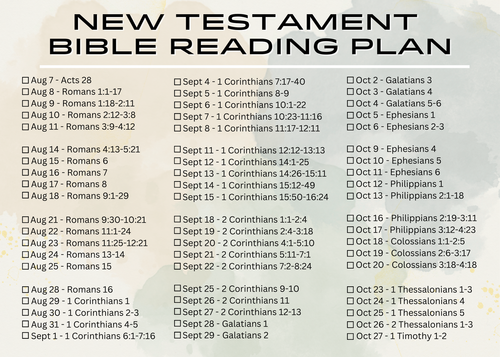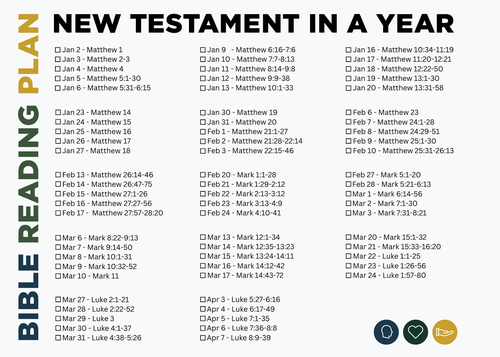One Degree Of Glory
2 Corinthians 2:5-3:18
Although Paul still experiences grief, the focus shifts towards forgiveness. Paul clarifies that the "anyone" referred to is a specific individual, the leader of a rebellious minority. This person has faced the consequences of the faithful majority in the Corinthian church, serving as sufficient "punishment." Paul emphasizes the need for forgiveness and comfort towards this individual. However, this does not mean disregarding the offender's wrongdoing. Paul urges the Corinthians to welcome him back with a love that mirrors God's love bestowed upon them.
Paul verifies their obedience by embracing wholehearted love and rekindling fellowship for a fallen comrade. He takes the initiative in extending forgiveness to this ringleader in their repentance, being the foremost forgiver. Forgiveness is not limited to a select few or a spiritual gift but rather a fundamental aspect of Christianity. By joining Paul in sincerely offering forgiveness, the Corinthians outmaneuver Satan.
Imagine Paul in Troas, preaching with anticipation as he eagerly awaits Titus' arrival for updates on the Corinthians. The living Christ guides Paul, presenting opportunities to represent the Savior. But having an open door isn't enough; we need the freedom and motivation to step through it. Despite Titus being unable to join him, Paul is not bound by human ups and downs or earthly circumstances. God reigns supreme. Therefore, Paul expresses gratitude.
Paul sees himself as a captive, led in a triumphant procession. The air fills with a distinct fragrance, like in a triumphal parade with burning incense and aromatic scents. Embracing the gospel invites us to encounter the living Christ proclaimed by joyous prisoners of God. This fragrance impacts both the saved and the perishing. The good news compels a response, propelling one closer to heaven or hell. No one is indifferent.
Paul probably refers to a distinct and familiar group of men infiltrating the Corinthian church. Unlike them, Paul has never preached for personal gain. The apostolic commission originates from God (from him) and is primarily intended for God (before him). Christ speaks through them.
Paul doesn't need "letters of recommendation" written for or by them. These letters act as formal introductions to potential hosts on behalf of the traveler. Paul rejects the need for commendatory letters to validate his leadership. The validation of Paul's ministry isn't found in the mailbox but in the mirror. They are the letters of recommendation. They just need to look at each other for confirmation.
Paul asserts that the Corinthians are living letters displayed for all to see. The ultimate source of their transformation is not Paul but the living Christ himself. Christ wrote with the Spirit, not with ink. Paul's confidence comes from being united with Christ the Mediator. This confidence is not self-sufficiency but from God. They are entrusted with and proclaimers of the "new covenant."
The Spirit brings life, while the letter brings death. The human heart left to its own devices, leads to condemnation when combined with the letter alone. However, in Christ, we are made alive by the Spirit. Despite external demands that bring death, the old age was still glorious. Paul connects the concepts of the Spirit, resurrection, and glory to the new era. The old order was unsustainable, relying solely on the letter without the Spirit. Biblical "hope" is not mere longing but a confident expectation based on present experiences.
After descending from Mount Sinai with the tablets of testimony, Moses was unaware that his face was radiant from conversing with God. He would cover his face with a veil when speaking with the people, only removing it in the presence of the Lord. Over time, God's people would experience His glory through Jesus Christ, just as Moses did. The concept is that, like Moses, those who reject Christ have a figurative veil over their eyes, mistakenly believing they see the Lord when reading the Old Testament (the old covenant). However, it is not through extensive knowledge of Scripture or strict obedience but solely through Christ that the veil is lifted. Those who do not believe in Christ fail to perceive the new order.
Consequently, their identity remains rooted in the old despite living in the era of the new. The veil persists. As we are joined to Christ by the Spirit, the Father removes the veil, enabling us to behold God in the face of Christ (verse 18). The veil has been permanently discarded. Paul emphasizes that the gift of the Spirit is intimately connected to freedom. Wherever the Spirit is present, the freedom of the gospel is found. It is freedom from the constraints of the law (verse 6).
Believers are transformed to resemble Christ. By fixing our gaze on Him, we reflect His likeness. This process restores our lost humanity and dignity. Beholding Christ's glory is a rediscovery of our true selves, like looking into a mirror where we simultaneously see and become Christ-like.
Paul verifies their obedience by embracing wholehearted love and rekindling fellowship for a fallen comrade. He takes the initiative in extending forgiveness to this ringleader in their repentance, being the foremost forgiver. Forgiveness is not limited to a select few or a spiritual gift but rather a fundamental aspect of Christianity. By joining Paul in sincerely offering forgiveness, the Corinthians outmaneuver Satan.
Imagine Paul in Troas, preaching with anticipation as he eagerly awaits Titus' arrival for updates on the Corinthians. The living Christ guides Paul, presenting opportunities to represent the Savior. But having an open door isn't enough; we need the freedom and motivation to step through it. Despite Titus being unable to join him, Paul is not bound by human ups and downs or earthly circumstances. God reigns supreme. Therefore, Paul expresses gratitude.
Paul sees himself as a captive, led in a triumphant procession. The air fills with a distinct fragrance, like in a triumphal parade with burning incense and aromatic scents. Embracing the gospel invites us to encounter the living Christ proclaimed by joyous prisoners of God. This fragrance impacts both the saved and the perishing. The good news compels a response, propelling one closer to heaven or hell. No one is indifferent.
Paul probably refers to a distinct and familiar group of men infiltrating the Corinthian church. Unlike them, Paul has never preached for personal gain. The apostolic commission originates from God (from him) and is primarily intended for God (before him). Christ speaks through them.
Paul doesn't need "letters of recommendation" written for or by them. These letters act as formal introductions to potential hosts on behalf of the traveler. Paul rejects the need for commendatory letters to validate his leadership. The validation of Paul's ministry isn't found in the mailbox but in the mirror. They are the letters of recommendation. They just need to look at each other for confirmation.
Paul asserts that the Corinthians are living letters displayed for all to see. The ultimate source of their transformation is not Paul but the living Christ himself. Christ wrote with the Spirit, not with ink. Paul's confidence comes from being united with Christ the Mediator. This confidence is not self-sufficiency but from God. They are entrusted with and proclaimers of the "new covenant."
The Spirit brings life, while the letter brings death. The human heart left to its own devices, leads to condemnation when combined with the letter alone. However, in Christ, we are made alive by the Spirit. Despite external demands that bring death, the old age was still glorious. Paul connects the concepts of the Spirit, resurrection, and glory to the new era. The old order was unsustainable, relying solely on the letter without the Spirit. Biblical "hope" is not mere longing but a confident expectation based on present experiences.
After descending from Mount Sinai with the tablets of testimony, Moses was unaware that his face was radiant from conversing with God. He would cover his face with a veil when speaking with the people, only removing it in the presence of the Lord. Over time, God's people would experience His glory through Jesus Christ, just as Moses did. The concept is that, like Moses, those who reject Christ have a figurative veil over their eyes, mistakenly believing they see the Lord when reading the Old Testament (the old covenant). However, it is not through extensive knowledge of Scripture or strict obedience but solely through Christ that the veil is lifted. Those who do not believe in Christ fail to perceive the new order.
Consequently, their identity remains rooted in the old despite living in the era of the new. The veil persists. As we are joined to Christ by the Spirit, the Father removes the veil, enabling us to behold God in the face of Christ (verse 18). The veil has been permanently discarded. Paul emphasizes that the gift of the Spirit is intimately connected to freedom. Wherever the Spirit is present, the freedom of the gospel is found. It is freedom from the constraints of the law (verse 6).
Believers are transformed to resemble Christ. By fixing our gaze on Him, we reflect His likeness. This process restores our lost humanity and dignity. Beholding Christ's glory is a rediscovery of our true selves, like looking into a mirror where we simultaneously see and become Christ-like.





Recent
Archive
2023
January
Happy New Year!He Will Save His People From Their SinsMy Beloved SonTemptation And MinistryThe SermonLeaving, Lying, Limits, Love, Largesse, and The Lord's PrayerTreasure, Anxiety, and JudgmentAstonishing AuthorityStorms, Demons, and HealingJesus Is CompassionateHis Eye Is On The SparrowSwords, Rewards, and MessengersThe Lord of the SabbathBlasphemy, Bad Trees, Signs, and FamilyStories, Sowers, and SoilsParables, Hidden Treasure, and RejectionFame, Food, Fear, Faith, and FringeReal Issues And The Power Of GodDying To Find LifeLike The SunChildren, Temptation, Sheep, And ForgivenessMarriage, Kids, And MoneyTo Serve And Give His Life
February
The ArrivalStories That StingQuestion TrapsHidden Motives And LamentThe End...?UnexpectedReady?Punishment, The Plot, And PerfumeTreachery, Passover, and The CupBetrayal, Injustice, And DenialThe Field Of Blood And The GovernorCrucifixion And DeathAll AuthorityMark—The Beginning Of The GospelHealing, Preaching, And The Forgiveness Of SinEating With Tax Collectors, Fasting, The Sabbath, And An Escape BoatThe Twelve, Blasphemy, Family, And A ParableParables And PowerA Different Kind Of StormPower Had Gone Out
March
Death, Hunger, And MiraclesCommandment Or TraditionDo You Not Yet Understand?The Christ And A Glimpse Of His GloryUnbelief, Confusion, And SinDivorce, Children, And PossessionsTo Give His Life As A RansomHosannaThe Rejected Stone, Taxes, And The Great CommandmentDestruction And The EndNo One Knows, An Anointing, And A Promise To BetrayPassover And GethsemaneThe Kiss, Arrest, And DenialPilate, Simon, And The CrucifixionDeath, Burial, Resurrection, And What\'s NextTheophilus And A Visit From GabrielMary And The MagnificatBenedictusThe Arrival And The ShepherdsSimeon, Anna, And The SpiritFruits Keeping With Repentance And BaptismThe Wilderness, Nazareth, And CapernaumSimon's Mother-In-Law, Fishing, A Leper, And Sins
April
Tax Collectors, Fasting, Sabbath Controversies, And The TwelveWhy Do You Call Me Lord, Lord?Jesus Marveled, A Raised Son, And QuestionsA Sinful Woman And A ParableObeying The Word, A Storm, And DemonsTwelve Years, Twelve Apostles, And SpeculationGreater, Costly, And GloryNot Getting It, The Cost, And AppointedWoes, Neighbors, And What Is NecessaryHelp Us Pray And A Divided Kingdom?Signs, Lights, And WoesHypocrisy, Fear, A Fool, And AnxietyParables, Division, And The TimesWarnings, A Daughter Of Abraham, And Jerusalem, JerusalemA Son Or An Ox, Parties, And DiscipleshipLost ThingsThe Dishonest Manager, The Law, And Anguish In This FlameMillstones And Mustard SeedsPersistent Prayer, Humility, A Childlike Faith, And The Rich RulerEverything That Is Written, A Blind Beggar, And A Wee Little Man
May
A Parable, A Colt, A Prophecy, And A CleansingAuthority, Wicked Tenants, And TaxesThings To Beware Of And WidowsDestruction, Persecution, The Son Of Man, And WatchingThe Plot, Betrayal, Lord's Supper, And Inappropriate BehaviorPrediction, Fulfillment, Agony, Betrayal, And DenialMistreated, Taken Before The Council, Pilate, Herod, And Delivered To Be CrucifiedCrucifixion, Death, And BurialHe Is Not HereDisbelieved For JoyIn The Beginning…The Lamb Of God And A WeddingZeal, What's Inside, And Born AgainHe Must Increase
Categories
no categories
Tags
no tags
